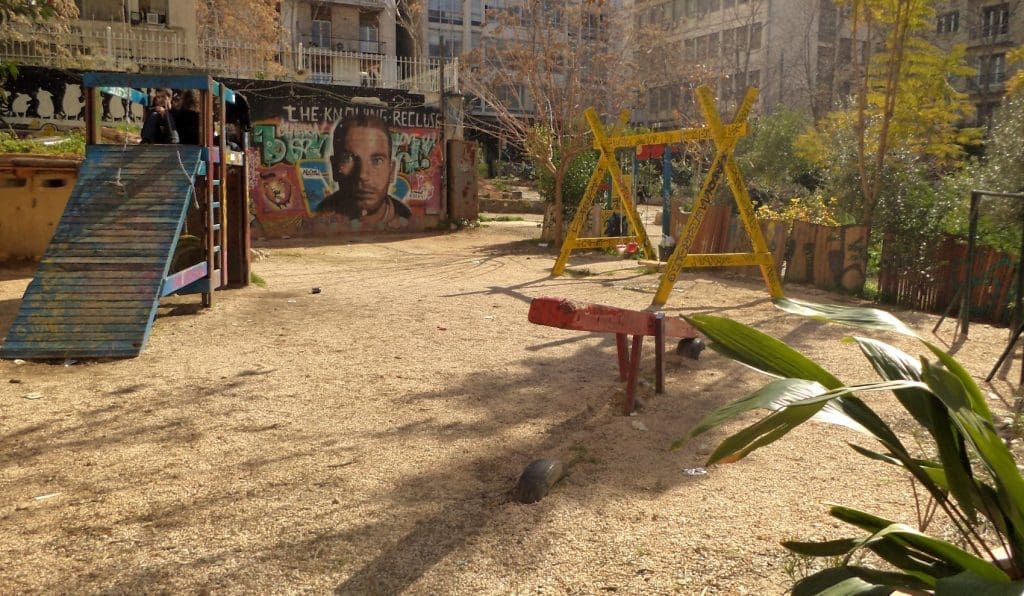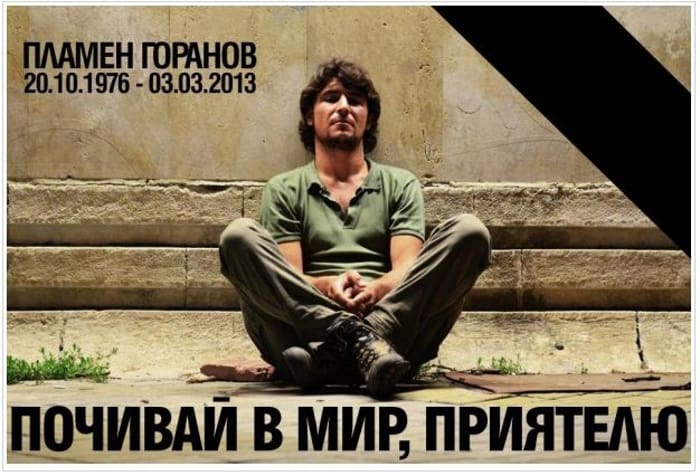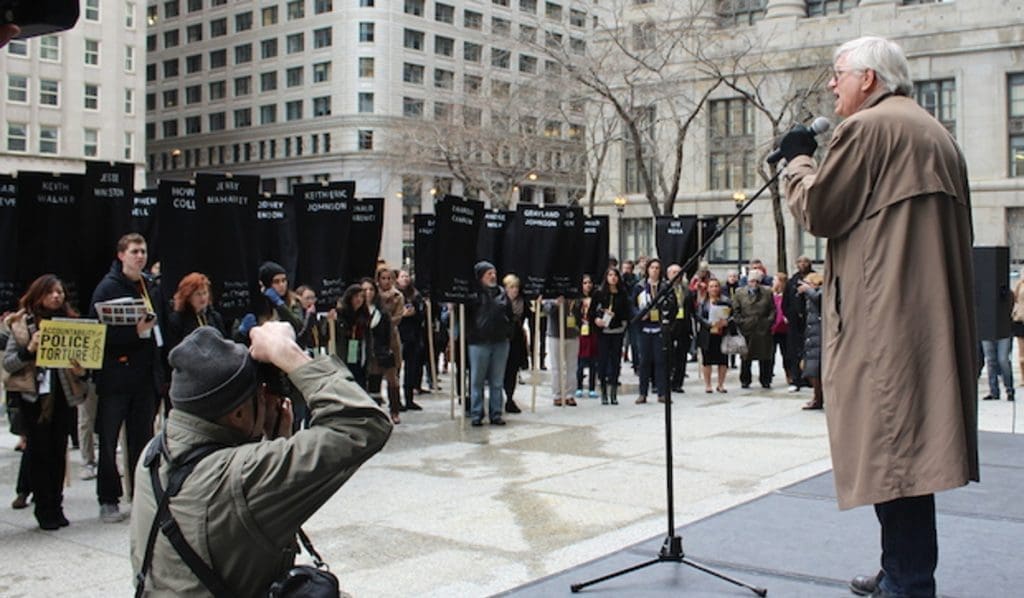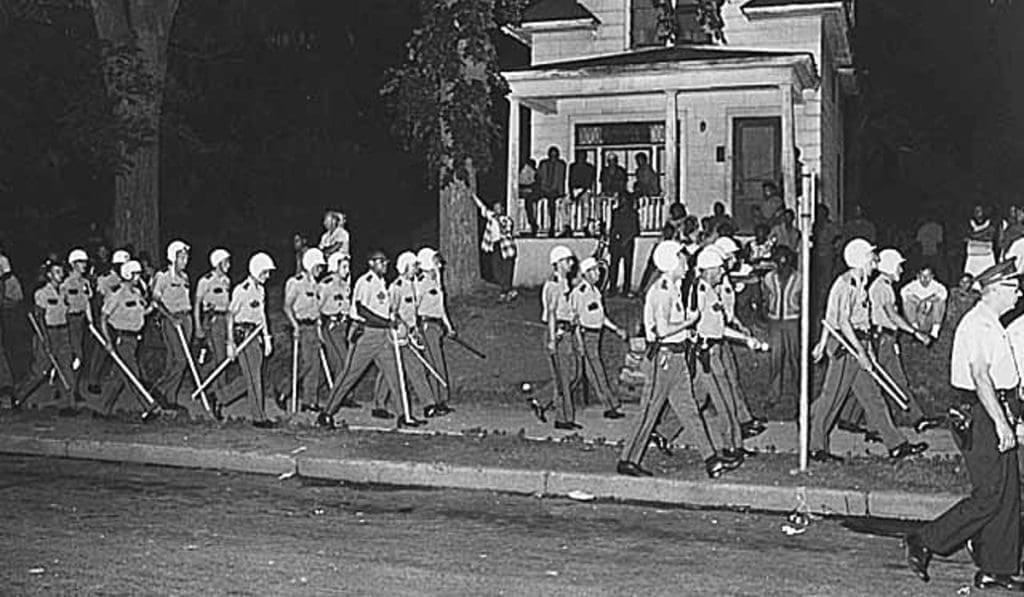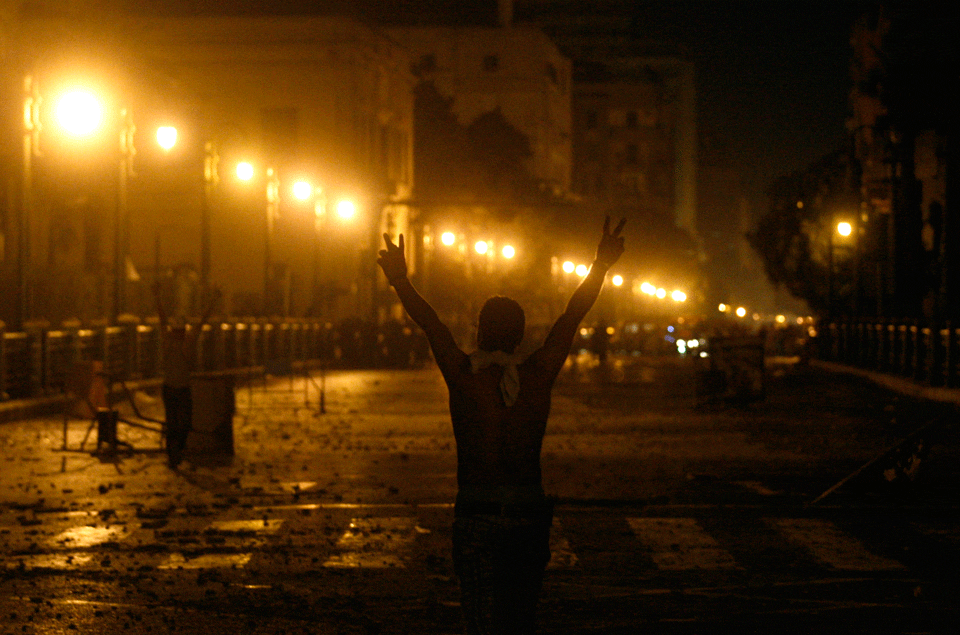Transcribed from the 3 March 2018 episode of This is Hell! Radio (Chicago) and printed with permission. Edited for space and readability. Listen to the whole interview:
There is something rather upside-down in our communities today. We’re beginning in the wrong place. We have to get back to thinking: What is it to create a community? What is it to care for others?
Chuck Mertz: Happiness, especially when experienced through collective joy, can be a radical expression of resistance critical to any real change we feel is absolutely necessary in our challenging and changing times. Here to explain the radical nature of happiness and joy, psychology and gender studies scholar Lynne Segal is author of Radical Happiness: Moments of Collective Joy.
Welcome to This is Hell!, Lynne.
Lynne Segal: Hello, Chuck.
CM: You write how you experienced a night of collective joy with your friends watching the election results from June 8, 2017: “We listened with mounting glee as the Labour Party massively increased its vote in so many areas across Britain, winning seats that had been unwinnable for decades, even centuries—the largest swing since 1945. In the end, the party did not win an outright majority, but jubilation lingered, knowing we had witnessed a momentous swing against the seemingly unstoppable policies of austerity and privatization.”
We recently had Johann Hari on the show to discuss his new book on depression. Johann sees what you call ‘seemingly unstoppable policies of austerity and privatization’ as causing our unhappiness. How much do you see austerity and privatization as the causes of our unhappiness?
LS: Depression always has many causes, but certainly there is a link. The link comes through the privatization of everything, which I think Hari is concerned with. What I’m talking about in Radical Happiness is that all our emotions do have a public face. There’s always a public side to our emotions. In fact, the whole happiness industry, as it’s called, telling us that individually we have to keep ourselves cheerful, and pull ourselves up and get ready for work the next day—that is really a response to the knowledge that there is so much stress, loneliness, and depression in society.
The person who became our ‘happiness czar’ in Britain, appointed by Blair, actually worked on depression. There are huge swathes of depression, definitely, which I connect with the fact that there’s less and less collectivity. There’s less and less coming together, even less possibility for people to come together as public space has tended to disappear and be invaded by corporations and so on, and that’s why political action and forms of resistance are the times when we do come together.
You saw all those people in their pink pussy hats not so long ago, in January, looking very cheerful—weren’t they? Because they were out there on the street together.
CM: You talk about Tony Blair and this ‘happiness ministry.’ This is unrelated to what Theresa May announced, the creation of a new ‘ministry of loneliness.’ As Forbes reported in January, “People in the UK are not alone in feeling lonely. The surgeon general of the United States, Vivek Murthy, who served from 2014 to 2017, wrote that loneliness is a growing health epidemic; we live in the most technologically connected age in the history of civilization, yet rates of loneliness have doubled since the 1980s. Loneliness is being seen as a major public health issue.”
How much faith do you have in a ministry of loneliness to have more success than a ministry of happiness in making people less unhappy?
LS: I would say zero. Because they’re still treating it as an individual phenomenon, really. What’s the underpinning of it? What is it that is driving us so apart that we’re not able to experience life together, to feel that we’re responsible for each other? Insofar as we see everything as simply an individual rather than a social or cultural phenomenon, then we’re not going to change anything.
And I haven’t heard anything coming from the ‘loneliness czar’ at all. The ‘happiness czar’ actually recommended that people be treated for depression. But they’re not talking in terms of collectivity or increasing access to public spaces.
When we do start to say we want things to be different, that’s when people come together, isn’t it? That’s where I’m saying we find joy emerging. But we need more of that, more of the time. And how we get that is something we’ve got to be thinking about in terms of community, in terms of being able to come together often to resist the things we don’t like, but also to question these ever-longer working days, to question the fact we don’t even have time to care for our own children. We have to import people on the global care chain, who are usually working even harder than anybody else, not to mention leaving their own children and loved ones at home.
So there is something rather upside-down in our communities today. We’re beginning in the wrong place. I’d say we have to get back to thinking: What is it to create a community? What is it to care for others? Not what it is individually to be out at work all hours making profit for the good of corporations.
CM: Back in November, we talked to Cindy Milstein, who’s editor of the collection of essays Rebellious Mourning: the Collective Work of Grief. Cindy argued that in that moment of grief, you can find the will and motivation to act radically even toward revolution.
Last week we talked with Andreas Malm about his book on climate change The Progress of This Storm, and Andreas suggested the power of panic and fear as tools for the needed radical reaction to climate change.
Yet this is exactly what is missing from the debates on the politics of happiness. How important is the power of emotion in radicalism? How much can we radicalize through happiness, grief, and even fear and panic?
LS: There is dystopic thinking everywhere. All our box office hits are dystopias, whether it’s Hunger Games or Blade Runner—many of the really big hits have been about apocalypse, about the end of the world. Why is that? Why aren’t we able to think together about how to create better worlds? There have been times when we were able to do that—in my own lifetime, for instance. I was fortunate enough to come of age in the 1970s, which was of course the first wave of women’s liberation, when we were busy all the time thinking up ways to better our communities, thinking up more collective child-rearing, more empathizing care; cooperatives and sharing were very much the mood music of the moment.
We do need to see that the world we’re living in right now is a fairly frightening place for all sorts of reasons. Our dystopic fantasies are not coming from nowhere. But there is another side, where people come together and say this isn’t the world we want, this isn’t how we want to live. When we manage to do that, we usually start smiling.
But dystopic thinking seems to have really taken over. I think things can shift, although it is strange and frightening that it is the calamity of climate change, of global warming, of the ice melting that is bringing us together now rather than our plans of how to live differently from the bottom up.
But you do see it; we saw it in the Occupy movement in 2011. We see this coming together collectively sometimes even when people are facing the very worst of situations—in slutwalks, when women are saying, “We’re not going to be treated as targets for men’s violence because of what we wear.” It’s there a little in the #MeToo hashtag as well (one issue being that it seems slightly more individual the way that’s come up). I think the potential is there for women coming together, but it has to be women coming together with men too, to say yes, we can change things. Some sort of utopian yearning is necessary for us to have hope together that we can create a world that really is more caring. It doesn’t have to be as we know it now.
There have been deliberate policies for the last thirty to forty years that have deregulated the banks, allowed corporations to invade almost all public spaces and so on, so we no longer have the free concerts that we had not only in the sixties and seventies but sometimes under the municipal politics of Britain in the 1980s. We really need to create the spaces for people to come together, both in resistance but also in celebration.
Barbara Ehrenreich is one writer who has always had a lot to say about this. Everything I write is very much in agreement with and indeed influenced by her. She’s written a book on joy called Dancing in the Streets, where she talks about the systematic efforts within modernity and under capitalism to get everybody into the workplace and to roll back the number of holidays, to roll back the festivals and collective life that we had together, to put all stress on the individual. All stress must be on the individual at all times to be bettering themselves, including increasing their own personal value.
Is that what life is really about? Is that what we’ll be thinking about as we leave this life? How much money did I earn? How many promotions did I get? Or will we be worrying about our children, about the world that we’re leaving them?
CM: What happens to the left when there is this practical liberal dismissal of utopianism? How does that affect the politics, the policies, and the thinking on the left when the people in the more centrist-liberal area determine that utopianism isn’t going to help us, that it’s not a practical end, and it’s not going to get people to join our side?
LS: It’s a question of what we’re thinking about when we think of utopias. Utopia is thinking forward towards the possibility of better lives. Most utopians weren’t talking about any single blueprint. If we go back to William Morris, for instance, his News from Nowhere was a dream. It was a dream that life could be better. Utopianism is about educating desire, letting us know that things could be better.
For some people in some places, like in Palestine today, for many people it is just a question of surviving, and of surviving despair. But it’s also resisting that despair and knowing that things could be different. However bad they are, things could be different. I think some sort of utopian impulse is necessary for the left, and I think it’s wrong to dismiss any utopian thinking as impossible. After all, it is a neoliberal idea that we should all just be out to improve ourselves and we don’t need to think of other people or collective life. That is a type of dystopia.
But there’s no reason to think that that’s how humans are. Humans, it seems to me, are social animals. So the social side of life, the collective side of life—trying to empathize—is certainly not something that doesn’t fit with what it is to be human.
Some people would say that it’s precisely how we’re living now which has got us so far from the possibilities of what a good life could be, but we certainly have to work out how we’re going to bring back spaces and places for greater equality, greater sharing, and shorter working time which would mean we can provide the care and commitment to others that we should. After all, it was an American, Edward Bellamy, who first thought of forms of municipal socialism, at the end of the nineteenth century, where the state and particularly localities would take a lot more responsibility for creating housing and for making jobs better and so on. Things could be very different now; we could have more collective control; everyone could be working shorter hours. Life could be very, very different.
CM: You write, “For a long time, happiness was understood as the outcome of certain types of worthwhile actions pursued for their own sake. It is clear that this definition encompasses a shared and public life.”
Have our notions of what happiness is—have they changed? To what degree have we simply raised the bar on what makes us happy, thus leading us to believe we are unhappy?
LS: There is a certain dispute about what we mean by happiness. If we go back to when Aristotle talked about eudaimonia, happy states, that was about living virtuously, being able to live the sort of life that had meaning. Now what we’re talking about or thinking about has gotten so individualized that it’s not just a question of raising the bar but it’s not seeing that emotions are public and that what we remember as joyful times are nearly always those times when we have been able to enjoy ourselves with others. The poet Wilfred Auden said that when you’re happy, everyone would like to have a tail to wag. It’s nice to share our happiness with others. When you see people being most euphoric today, it’s usually something like watching football in the pub when your team is winning. It’s something that you can share with those around you.
It is moments of sharing things that you’ve been able to help achieve with others—that’s what I’m talking about when I’m talking about radical happiness. Of course there is personal happiness, particularly the sorts of euphoria you can feel in beautiful places like at the top of a mountain looking out at the world, but that sort of euphoria is something that you also can share, that you can write and talk about and that other people can share.
But personal happiness, I think, and particularly people feeling that they somehow are responsible for their own happiness—that’s something that I’m arguing is rather strange. Particularly if you have to take drugs in order to achieve it.
CM: You write, “In our time, happiness and love—especially romantic love—are seen as inextricably entwined, despite all we know of its inescapable uncertainties and ambivalence.” How much do we mistakenly entwine happiness with love? How much do we depend on love to bring us happiness? And is that potentially dangerous?
We need to escape that ‘gloomy tyrant,’ our selves, to be able to place ourselves in the world in relation to others.
LS: I have a couple chapters on love in which I’m trying to unpack this tricky concept. The notion of romantic love, the idea that just one person alone would be able to fulfill all our needs, is as likely as not to imperil us, to lead to us feeling anxious. When we are most in love, we are often feeling most vulnerable.
But there are also many different forms of love—there’s certainly individual paired love, but there’s love of animals, love of children; there’s love we can experience with others around us. We all must have love in our lives, but the emphasis on romantic love as the one thing that going to rescue us from loneliness and change our lives, like Cinderella finding her prince—that is a particularly dangerous sort of love, particularly as the sorts of commitments that people are looking for from one other person can be rather hard to find today, for many reasons. We know that almost fifty percent of marriages end in divorce and so on.
I’m arguing for expanding our notion of love to make it more the love of one another, and the love of children, the love of community, and so on.
CM: How important do you think optimism is to being happy? It would seem like you would have to be optimistic in order to be happy, and I do this radio show called This is Hell! so I’m not all that optimistic, which might explain some of my unhappiness. How important is optimism to being happy?
LS: It seems like “this is hell” is slightly tongue-in-cheek, in that you are trying to create a program that people are going to enjoy listening to, as I have been enjoying it. You know that Gramscian statement, “Pessimism of the intellect, optimism of the will.” We do need to see that the world we’re living in right now is a fairly frightening place for all sorts of reasons. Our dystopic fantasies are not coming from nowhere.
But there is another side. There is another side when people come together and say this isn’t the world we want, this isn’t how we want to live. When we manage to do that, we usually start smiling. We really do. We start knowing that there are ways to be together with others, when we feel that we might be able to create something different. For a while, we do. For a while, people do create different things together, and so I do think a certain optimism of the will that things could be different is important.
This doesn’t mean that we don’t ever need to say “this is hell.” It is hell, sometimes. I do think that in many peoples’ working lives, they don’t have the time to do what they want to do, whether it’s care for their children, care for older people who they feel committed to, or just care for the community, care for the world, amor mundi. If we can bring that into our lives, and talk to other people about it and think about it, there will be more moments where we are smiling together.
CM: You mention political theorist Hannah Arendt, arguing, “Such political engagement was necessary to sustain happy and healthy societies and vice versa. Sadly, Arendt’s reasoning may strike us as most absurdly utopian today, when the opportunities for democratic participation in affairs of the state are so very reduced.”
How much can direct participation within democracy lead to collective happiness, if not joy? How much do we suffer from an epidemic of unhappiness because of the shortcomings of what we call democracy? Is direct democracy something that would make us happier than representative democracy?
LS: It’s not just one or the other. What Arendt was calling for was public spaces and places where people could be at least engaged, in some ways politically, with the world. And those moments and engagements do happen. She said that to lead a full life, you should feel some responsibility for the world, some responsibility to be able to say how you think things should be.
Of course, that was what the whole foundation of America was meant to be, to be able to have some say in how you live, and how you live together with other people. On a smaller scale, there are still possibilities for doing that, and you see that when people take to the streets or when people come together, even just in raising money to help asylum-seekers—in thinking about other people, not just thinking about themselves, but thinking about themselves in the world and thinking about the lives of others.
To the extent that you’re able to do that, that helps you get away from that “gloomy tyrant,” the self—we need to escape that gloomy tyrant, our selves, to be able to place ourselves in the world in relation to others. Democratic engagement takes many different forms—just finding out something about the lives of those around you and whether there are ways in which you could connect with them, that’s a type of democratic engagement.
CM: There are those activists of late who have been critical of the effectiveness of street protests, marches, sit-ins, lockdowns. They are critical about how truly effective they can be for leading toward political change. In your opinion, how much are protests about political change, and how much are they about empowering people toward working on political change?
Is the protest not the tool of changing the system, but changing the citizen?
LS: Yes, the protest isn’t likely, in and of itself, to change the system. That’s where we need many more ideas around coalition-building, around how we have to begin from our local areas. Even our streets. How could our streets be different? How could our local communities be different? No one event is going to transform anything. But yes, you’re right, it could help you to feel like an empowered person with other people. It’s never just going to be the one leader who is going to come up with all the solutions. It’s got to be how we can begin to trust one another more.
Partly, depression and isolation are a type of paranoia that you can’t trust anybody. We have no real friends, no one is on our side. To try and overturn that feeling, just go down to some place where you see people working for and with others, and say, “what’s going on here?” There are all sorts of ways in which one might be doing something more collective with other people, which could be a start. Even perhaps sharing your depression might be political—there might be a reason why I’m feeling depressed, and maybe by beginning to share that with other people rather than just taking the Prozac could be a worthwhile thing to do.
Other people, particularly in situations where we can be sharing their sorrows as well as their joys, can give a certain hope. And hope is what keeps us alive and keeps us going, and I think is important for us all to try and hold on to.
CM: You write, “It was the sudden appearance of political collectivity that provided the mood and momentum of my younger life. When the women’s army was marching in the passionate beginnings of the women’s liberation movement at the close of the 1960s, it is the lasting significance of those years that has helped many an aging feminist keep a certain political optimism alive, whatever gloom we may feel about the present.”
How much do you think past political participation that still gives a lingering feeling of optimism—how much is that optimism potentially misguided, even leading to naivete? Can past political victories potentially cloud our vision of the potential for making change today?
LS: I don’t see why that should be the case, because one can return critically to those past moments. What Adrienne Rich used to say is that one should never give up on those dreams that we’ve shared. Perhaps we could see some of the shortcomings in them. But insofar as they have created moments of hope, moments of joy, then those moments can come again. That’s why my subtitle is “Moments of Collective Happiness.” Most were at least on to something, and some of their ideas get accommodated and then transformed into something else.
If we think of women’s liberation, women’s voices actually have created all sorts of change: the recognition of violence against women, the importance of women’s reproductive control, all sorts of notions which weren’t there before. So that political activity did not fail, though it did get accommodated to market forces, to the forms and individualisms and ruthless competitiveness which is the dominant sentiment of neoliberal capitalism today. It’s not the case that what we wanted was wrong or that we simply failed. It is the case that we always have to renew our forms of resistance, our forms of collectivity. We go back and start again, over and over.
But that’s not so surprising. Life is about repetition. We never simply lose, just as we never win for all time. It’s never going to be the case at any one time that we’ll be able to do everything or even listen to all voices and all people who might be being excluded at any moment. All we can do is work for greater democracy to come, and that democracy is the possibility for you to be involved in determining the conditions of your life.
That will always be something to come. So I don’t think there is failure or victory. It’s a constant process of renewal.
CM: You write, “The more peaceful joy that I find the easiest to describe and understand is when we are most fully absorbed or lost in something clearly bigger than ourselves—free for a while from exactly that self-monitoring that disciplines our daily lives. Anxious self-scrutiny also more easily slips away when we find ourselves caught up with others in public spaces.”
This made me think of the conversation we had with Shaun Scott, the author of a book called Millennials and the Moments that Made Us, and how there is a marketeering logic among millennials because they have been raised in the most commercialized world; they have been marketed to more than any other previous generation. How much is self-scrutiny and self-monitoring a cause for our unhappiness? And is any of that self-scrutiny that takes place when marketing ourselves, branding ourselves—how much do you think that’s creating unhappiness?
LS: It’s creating anxieties for many people. All those selfies, for instance: you’ve got to look good in your selfie, and you usually don’t look good, actually. You think your chin’s too big and your face is too large and so on. The pressure on the individual to be always increasing their own “market value”—that’s going to cause more individual misery.
I’m not against new technologies. Many new technologies do enable us to genuinely share more with others and to be in touch with friends who are distant from us, or to communicate with people whom we’ve never met and may never meet. So I’m in no way against new technology. But there’s always an extent to which it comes back to “me, me, me, and only me” and “how do I look better?” How we can stand on that perilous rock of the we is a question we should be thinking about more.
CM: As I was saying earlier, I struggle with being happy for many reasons, but one is the content of this show, a show called This is Hell!, which focuses on the horrors of the world that are being ignored by the mainstream media and popular debate and discussion. To what degree is it possible to be well-informed and fully aware of all the world’s challenges, and still be happy?
LS: You’re right, that’s a very difficult question. I often ask it of people. I have a friend now who is working with the Rohingya, the people who are being most persecuted at the moment, driven out of Burma because they’re Muslim and not Buddhist. I say, “How can you do it?”
You do it because you’re never doing these things alone. When you really are trying to be together with others in the worst of situations, then there is a sense of solidarity, and it’s that sense of solidarity which makes you see that no matter how bad things are, to the extent that people will open their eyes to condemn that, that will make you feel a bit better. And not only will some people open their eyes to condemn it, but they will feel moved by what some people are doing, and to the extent that you can be there with them, it can, at times, take you away from what are often the sort of petty anxieties that you have.
By the way, our anxieties may not be petty at all; in the precarious lives that many people are in, they have every reason to be panicking about their own life. But to the extent they can say, “What is going on here?” and talk to people about it, then to that extent the hell, at least for a while, will be slightly lessened. Even in hell, there is usually an intimation of what could be an exit. Sartre might have said “No exit in hell,” and hell is other people, but I think the existentialist was wrong about that. Other people, particularly in situations where we can be sharing their sorrows as well as their joys, can give a certain hope. And hope is what keeps us alive and keeps us going, and I think is important for us all to try and hold on to.
CM: This conversation has created a very weird feeling in me, and it might be happiness? I’m not sure what it is. But I truly appreciate it. Thank you so much for being on our show.
LS: Thank you so much for having me.
Featured image: Navarinou park, Exarcheia, Athens

